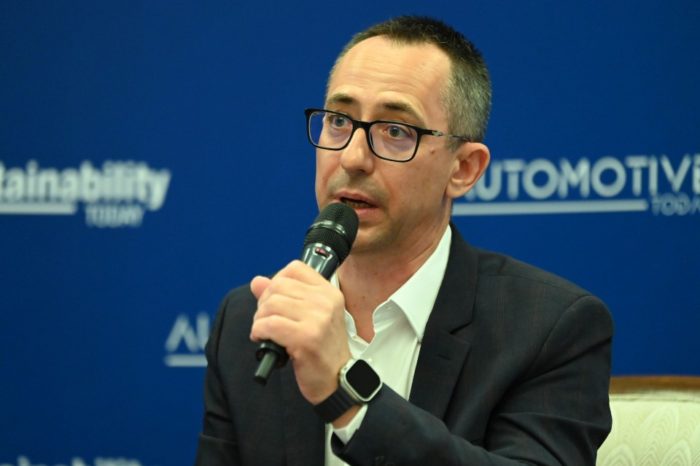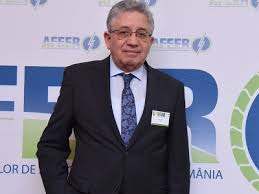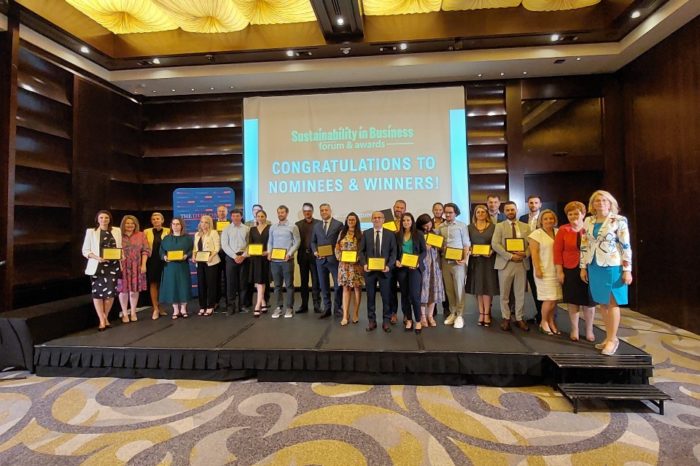Romania’s objectives and progress in increasing the volume of renewable fuels. Conclusions of the online debate “Stop Disposing of Used Food Oil – Examples of Good Practices and Stimulating Collection in Romania”

Why do we have to collect used cooking oil? How do we collect used oil? And, perhaps the most confusing for many Romanians: What can we do with used oil once we have collected it?
This is where the information campaign carried out by the Intelligent Energy Association comes in, which seeks, on the one hand, to raise awareness of the importance of collecting used cooking oil and, on the other hand, to identify the impact that this waste used in biofuels has. in terms of the weight or quantities collected. Last but not least, among the major objectives of the Intelligent Energy Association is the consistent and sustained promotion of a legislative initiative, which should materialize in a proper collection of used oil, in its capitalization and in the creation of added value.
A study conducted by Deloitte, at the initiative of the Intelligent Energy Association, on the use of used cooking oil for biofuel production shows that Romania is just beginning to implement a system for collecting used cooking oil, with a high potential for growth in terms of quantity to collect. What are the objectives for increasing the volume of renewable fuels in the energy mix in the next period to meet the new targets for reducing greenhouse gas emissions, but also the most eloquent models of good practice in Romania were, therefore, among the topics addressed during the online event “Stop Disposing of Used Food Oil – examples of good practices and stimulating collection in Romania”, organized by the Intelligent Energy Association.
“Earlier this year, the Intelligent Energy Association launched an awareness campaign on what used edible oil means, both from the perspective of environmental elements, from the perspective of the various obligations we have assumed at European level, from the perspective of other obligations that We have them at European level – namely the <Fit for 55> Package, which provides for certain specific elements of recycling, obtaining used oil or elements that can later be converted into biofuel, but also reducing the use of conventional biofuel, obtained through technical plants on agricultural land and, last but not least, from a perspective of Romania’s development, of increasing resilience, but also of what it means to obtain additional income in Romania or to create added value in Romania ” declared, in the opening of the online event, Dumitru Chisăliță, the president of the Intelligent Energy Association. “I relied on multiple vectors that I c we consider it absolutely necessary to be used and developed in Romania, because all these are, on the one hand, obligations assumed, and their non-compliance entails fines, which, in the end, people pay – through taxes, excise duties and so on. further – and at the same time we are talking about some very important opportunities that we have at the moment, especially in the context in which we find ourselves, a context in which we are discussing an energy crisis, a potential food crisis and we are constantly with the “sword above the head” when we talk about the fuel crisis “, added the founder of the Intelligent Energy Association.
Unfortunately, many Romanians choose to dispose of used cooking oil by throwing it in the sink without knowing that there are recycling centers in large chain stores. “Carrefour Romania has been practicing this collection of used cooking oil since 2019, when we felt that there is such a need in the market and, indeed, it is a resource that can be used in other processes. It started following internal discussions , with the launch of an extremely important program of ours – that of having the first “zero waste” store. and, as far as possible, all waste to the sorting, collection, recycling station (including biogas) The project was a success, obviously with considerable costs and implications, Therefore, we intend to take these lessons, take them to the whole Carrefour chain and, hopefully, in the coming years or as soon as possible, have as many “zero waste” stores as possible. ” said Felician Cardoș, Carrefour Romania Environmental Manager. Currently, the retailer has 62 stores where used cooking oil is collected – an example of perseverance and determination in the recovery of this waste. The company plans to take this project to the next level. “Why don’t we go with this project to the whole Carrefour chain, which has more than 360 stores? The reason is that the project needs a period of maturation, and, in addition, there are some inherent logistical difficulties, which are joined by therefore, we do not want to launch a project just for the sake of launching it, without it being operational, but on the contrary: the customer should feel satisfaction when using such an option, “explained the official Carrefour Romania . The campaign was simple, effective. According to the Carrefour initiative, the customer can bring in 4 liters of used oil, for which he receives a liter of new oil in return. “So far, we are proud to have managed to collect 800,000 liters of used oil from the market, which we have passed on, with the help of the collectors that Carrefour works with, to the biofuel stations,” he said. added Felician Cardoş.
Romanians who have large quantities of used cooking oil, which they want to capitalize on, but also companies can turn to companies specialized in collecting this waste.
“Currently, we have developing campaigns, carried out by our company, representing selective collection, from the population. Specifically, we collect used cooking oil right from the homes of those people. We operate in several cities in the country, especially in However, given the large number of requests from various cities, we are working hard to meet as many of these requests as possible. We are referring here to a minimum of 5 liters of oil. used food per household, in exchange for which the family will receive a liter of new cooking oil. available, on the basis of a previous contract, several containers for the collection of used cooking oil, then, at their request, we come and We pick it up. We do the same in the case of households “, said Adrian Bradea, Bracos Oil administrator, during the online debate initiated by the Intelligent Energy Association.
And some localities have become leaders in the collection of used cooking oil, mobilizing with consistent resources for the collection and recovery of this waste. In the municipality of Miercurea Ciuc, regular collection campaigns were organized, to which the inhabitants of the city were very receptive. “The experience is totally positive, but this experience of the local authority was preceded by a program, which lasted several years, developed by an environmental non-governmental organization, which periodically launched actions to collect used cooking oil from households.
There was also the project of an oil company that, through gas stations, collected this used cooking oil. Based on all these attempts, we have seen that a much more serious approach is needed here, because this is a real problem – especially in block of flats, in apartments, it is important what happens to used cooking oil. Therefore, from the experience gained in the city by that non-governmental organization, at the initiative of a private company, which took over these used cooking oils, with the support of the Municipality, a number of 15 containers were installed. And since the end of October and until now, we have collected 9 tons of used cooking oil. You can imagine what 9 tons of used cooking oil means for the wastewater management system, but also what degree of pollution it entails! “, Declared Korodi Attila, the mayor of Miercurea Ciuc Municipality.
This article is part of the “STOP Disposal of Used Food Oil” project initiated by the Intelligent Energy Association in order to raise awareness of the devastating impact that the spillage of used cooking oil can have on the environment and to help inform consumers about its benefits. which its correct collection can have on our daily lives by increasing the quality of drinking water and air. At the same time, the use of used cooking oil in the production of energy from renewable sources will make it possible to meet the European Union’s targets for reducing carbon emissions.















